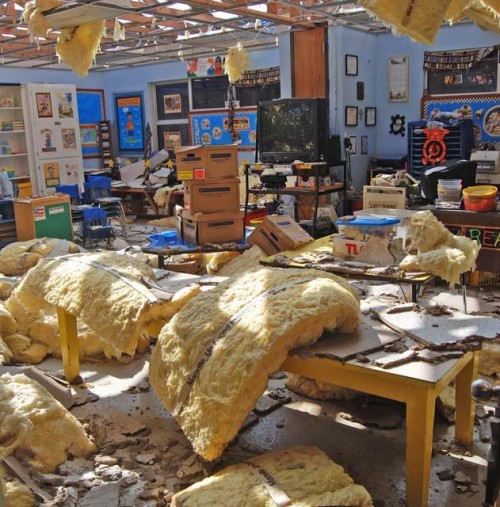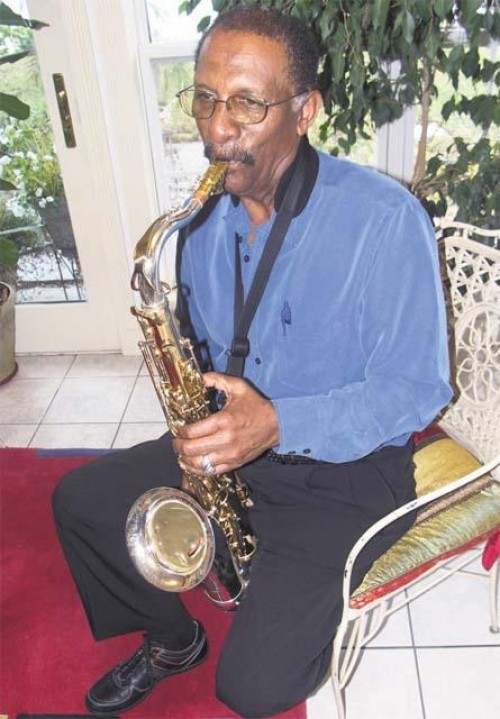
Gustav, Ike payments end
February 13, 2012
Chabert staff worry about community loss
February 14, 2012Lionel Ruffin said his grandchildren have no concept of where blacks have emerged from since the days of accepted segregation, blatant prejudice and efforts to secure civil rights, which were part of his youth in Terrebonne Parish only a half century ago.
A native of Houma, graduate of once all black Southdown High School (now Southdown Elementary School), accomplished musician and retired educator, Ruffin is among a generation that fears that an appreciation of February being Black History Month may be lost among a younger generation that still is lacking lessons on contributions to America made by minority races.
“These younger people have no clue,” Ruffin said. “They have no clue, but it is only because we haven’t told them and it is not in their history books [other than a passing mention]. That’s a good thing that things have improved, but a bad thing if it is all forgotten.”
Ruffin is not the first man to express those concerns. Nearly 100 years ago, Carter G. Woodson felt much the same.
The son of former slaves, Woodson had worked in mines before deciding at the age of 20 to develop his mind. He graduated from high school at the age of 22, went on to earn a master’s degree from the University of Chicago and in 1912 completed a doctorate at Harvard University. He wanted to teach history at the Ivy League institution, but at the time Harvard did not hire black professors. Woodson did, however, land a position at the renowned all-black Howard University.
A major concern for the historian was how contributions of black people in America were not only ignored in his contemporary life, but had been excluded from history books. In 1915, along with Jesse E. Moorland, Woodson founded the Association for the Study of Negro Life and History.
In 1926, the ASNLH sponsored National Negro History Week on the second week of February to coincide with the birthdates of Abraham Lincoln and Frederick Douglas.
It was not until the civil rights movement of the 1960s that the black history observance gained significant attention and began being observed on many college campuses. President Gerald Ford officially recognized and signed a proclamation in 1976 that designated February as Black History Month.
While American race relations transitioned through the 1950s and 1960s, Ruffin played saxophone in bands as a teenager and young man. After completing college he became a music teacher and then an assistant principal with the Terrebonne Parish School District, but continued to perform with R&B bands on the side.
Ruffin recalled that for much of the 20th century, music was one career where blacks were accepted as professionals with limited question n although they were not allowed to remain inside white clubs between performances and were relegated to taking breaks in alleys behind the establishments where they worked.
The retired educator resisted going on the record while talking about experiences of mistreatment due to racial discrimination, choosing instead to comment on how some of the clubs on the old chitlin’ circuit, that included clubs in Thibodaux and Houma, were proving grounds for performers like Sam Cooke, Ike and Tina Turner, Ray Charles and other eventual big name entertainers.
“We didn’t have segregation among musicians,” Ruffin said. “We played with white as well as black performers and never thought anything about it, because we were there for the music.”
Ruffin admitted that discrimination still exists, although it is not as blatant in terms of segregated restaurants, restricted job opportunities, and hostile belittlement of blacks as in the past. “At the time we really didn’t know it could be any different,” he said. “That’s just the way it was, but there is a big difference now, man, a big difference.”
What disturbs him is the limited inclusion blacks continue to have in telling the story of America to students in public schools. “Kids today don’t have a clue how it used to be,” Ruffin said. “They are all integrated now and that is good, but they don’t know what they have or why they have it.”
While it is good to have a designated month to recognize blacks, Ruffin for one would like to think greater blending of racial mix in history lessons would benefit everyone.
“I think they need Black History Month,” Ruffin said. “Most of the text books in schools don’t have black history. What they really need to do [other than designating a specific time period] is change these text books and put the truth in these text books. When I tell my kids stuff they don’t know, they are surprised.”
During the age of slavery in America, people owned by white masters were banned from learning to read and write so as to remain dependent upon their holders. Ruffin said he wonders sometimes if some of that mentality has carried over into restricting what is revealed in text books more than 145 years from the abolishment of slavery and 48 years after passage of the Civil Rights Act.
“I admit it, we had it rough when we were kids [because of discrimination] and there were conflicts,” Ruffin said. “To make it better we can talk to the kids now about what we know n how it was back then. I think we need to not just recognize Frederick Douglas and those guys way back there, but the local blacks we have right here today that the kids need to be aware of.”
The retired, but continual educator, said that in order to keep Black History Month, or any day of any year meaningful, adults in all walks of life and of all races should teach youths how what they are living today will become tomorrow’s history. Only then, he said, will the entire community not only have a concept of from where it has come and where it is now, but will possess a better understanding of where it may be going.
R&B musician and retired educator Lionel Ruffin shows what he can still do with the saxophone. These days he is hoping his grandchildren can learn from what he and previous generations of black Americans have experienced. MIKE NIXON







